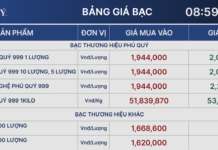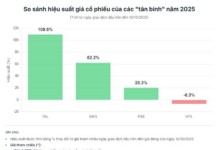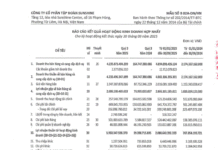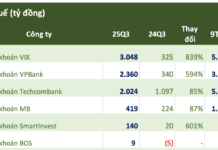From January 2025, unverified accounts will not be able to transact online. This is the latest update from Circular 18, which regulates bank card activities and has been issued by the State Bank.
The regulation clearly states that identity documents and the account holder’s biometric data must be verified before the card can be used for electronic transactions. This contributes to “cleaning up” accounts, eliminating those with fake documents, and removing accounts that are not in the owner’s name.
The account holder’s biometric data must match the encrypted information stored on the e-ID card with a chip or the e-ID card issued by the police. Alternatively, it can be verified through electronic identification and authentication systems.
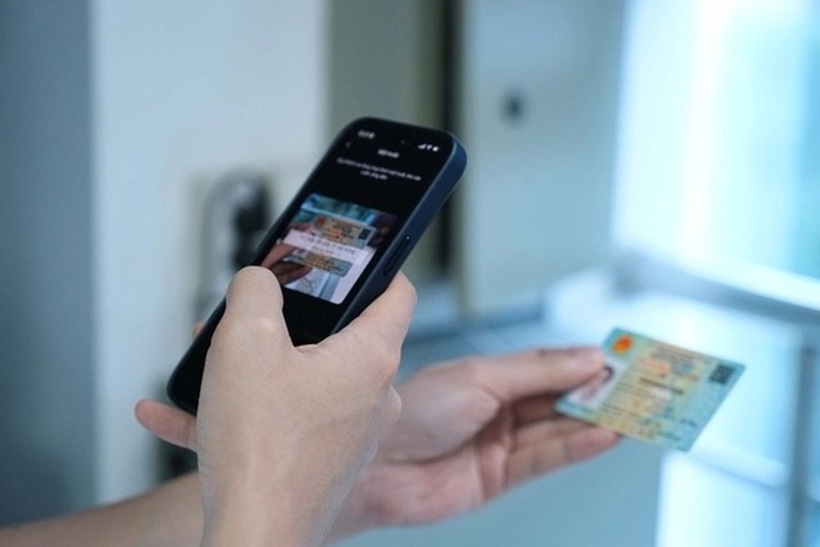
From January 1, 2025, unverified accounts will not be able to transact online. Illustrative image.
Another option is for the biometric data to be collected and checked, ensuring a match with the encrypted data on the e-ID card issued by the police or the electronic identification data. Lastly, for those using an e-ID card without an encrypted data storage component, their biometric data must be stored in the National Population Database.
Additionally, the circular stipulates the application of authentication measures for each type of electronic payment transaction, in accordance with SBV regulations on safety and security for the provision of banking services by electronic means.
The use of payment accounts in VND by non-residents, resident foreign individuals, and payment accounts in foreign currencies must comply with the provisions of this Article and the laws on foreign exchange control.
Therefore, from January 1, 2025, all account holders must register their biometric data if they wish to withdraw or transfer money online. This is a step up from the previous regulation, Decision 2345 of the SBV, which took effect from July 1, 2024, and required biometric authentication for transfers over VND 10 million per transaction and VND 20 million per day.
Circular 18 also sets a limit on foreign currency cash withdrawals abroad, with a daily maximum of VND 30 million per card. For credit cards, the total cash withdrawal limit per credit card BIN is VND 100 million per month.
In addition, the credit limit for secured personal credit cards is VND 1 billion. In the absence of collateral, the credit limit granted to the cardholder is a maximum of VND 500 million.
Circular 18 also specifies several cases for card retrieval, including counterfeit cards, cards used illegally, cards involved in criminal investigations, and other cases as agreed upon in the card issuance and usage contract.
“Compulsory Account Verification for Online Money Transfers Starting 2025”
The State Bank of Vietnam has introduced a new regulation, effective from the 1st of January 2025, that requires all bank account holders to authenticate their accounts. This means that account holders must verify their ownership before conducting any transactions. Accounts will be suspended if the identified period expires.
The Power of ‘Account Authority’: Why Authentic Transactions Matter
As of the latest statistics from ACB Bank, nearly 800,000 customers have successfully registered for facial recognition authentication. Mr. Tu Tien Phat, CEO of ACB, believes that facial recognition is a comprehensive solution to account security and privacy risks, even in cases where account holders’ information is compromised.
“A Bank Pilots NFC on Over 200 Phone Models: 2 Million Customers Successfully Biometrically Verified in Just 3 Days.”
“Our team at the bank conducted an extensive study on 200 diverse smartphone models, examining the varying placement of NFC connectivity. This comprehensive research ensures we can cater to the diverse needs and preferences of our valued customers.”
“Biometric Security: A Cat-and-Mouse Game with Cybercriminals, Says Deputy Governor”
“There is no such thing as a completely secure solution,” says Deputy Governor of the State Bank of Vietnam, Pham Tien Dung. He emphasizes that as soon as a new measure is implemented, criminals devise new ways to circumvent it, creating an ongoing battle for banks to continuously issue and promote security advisories. With each new fraudulent scheme, we must remain vigilant and proactive in our warnings.

